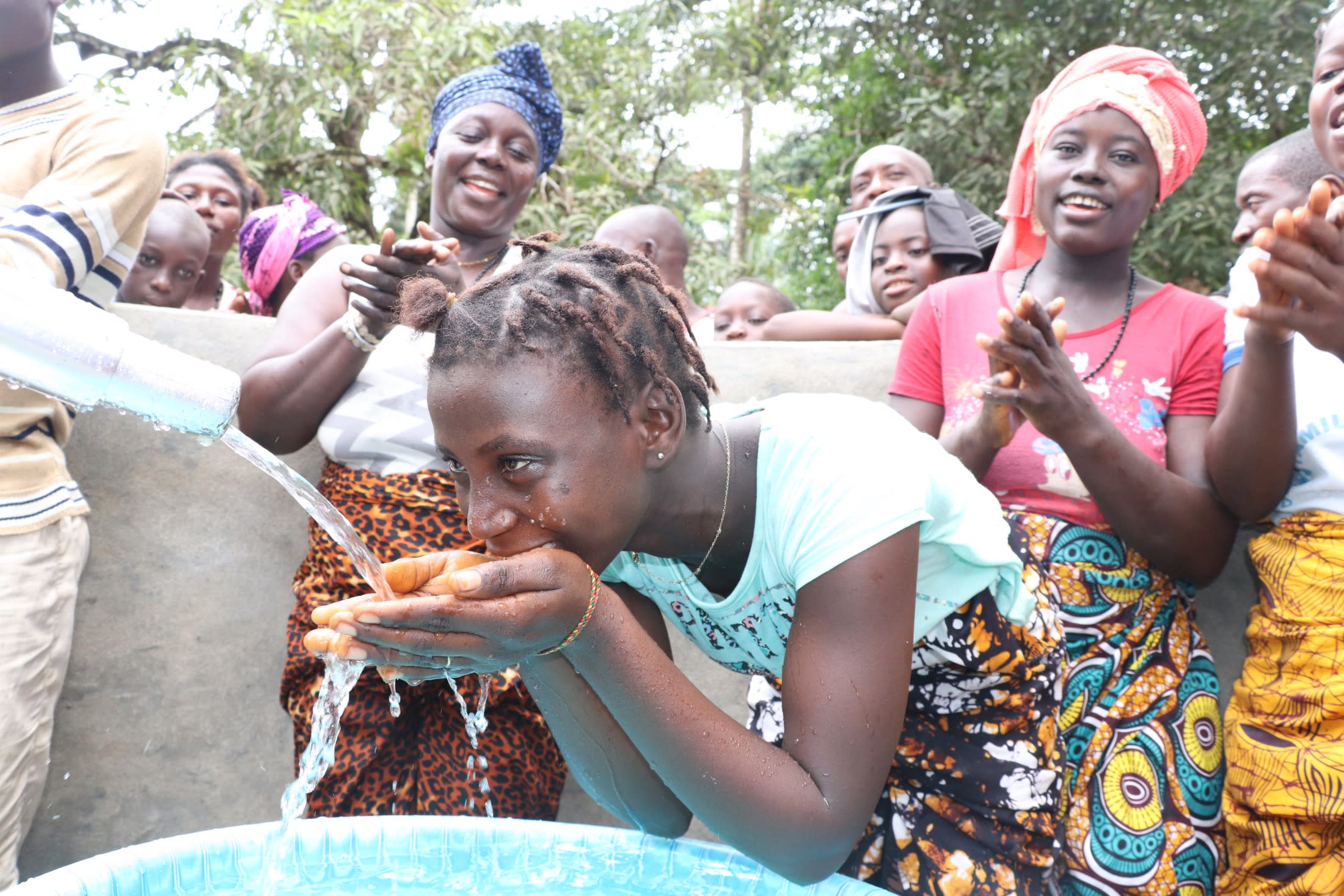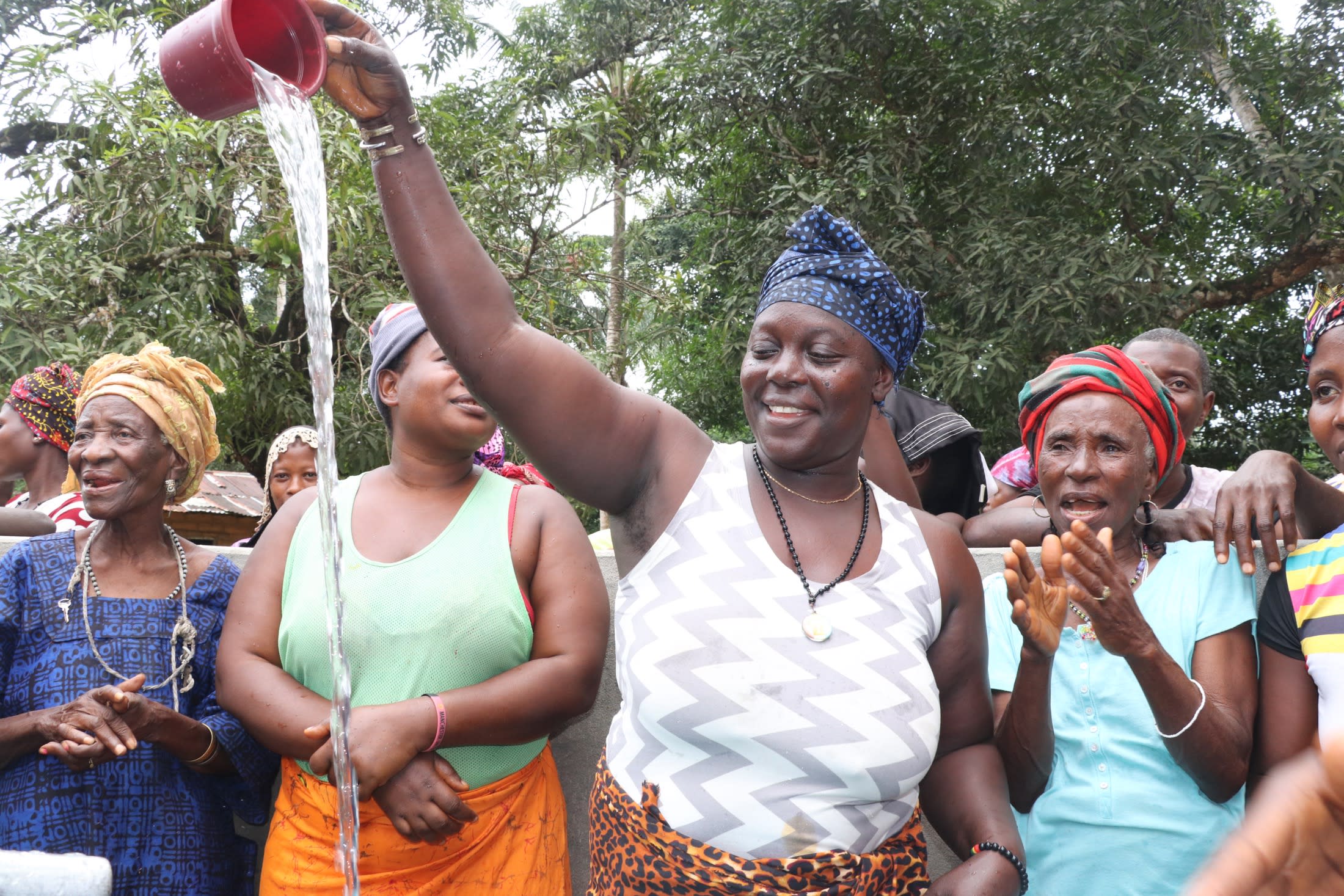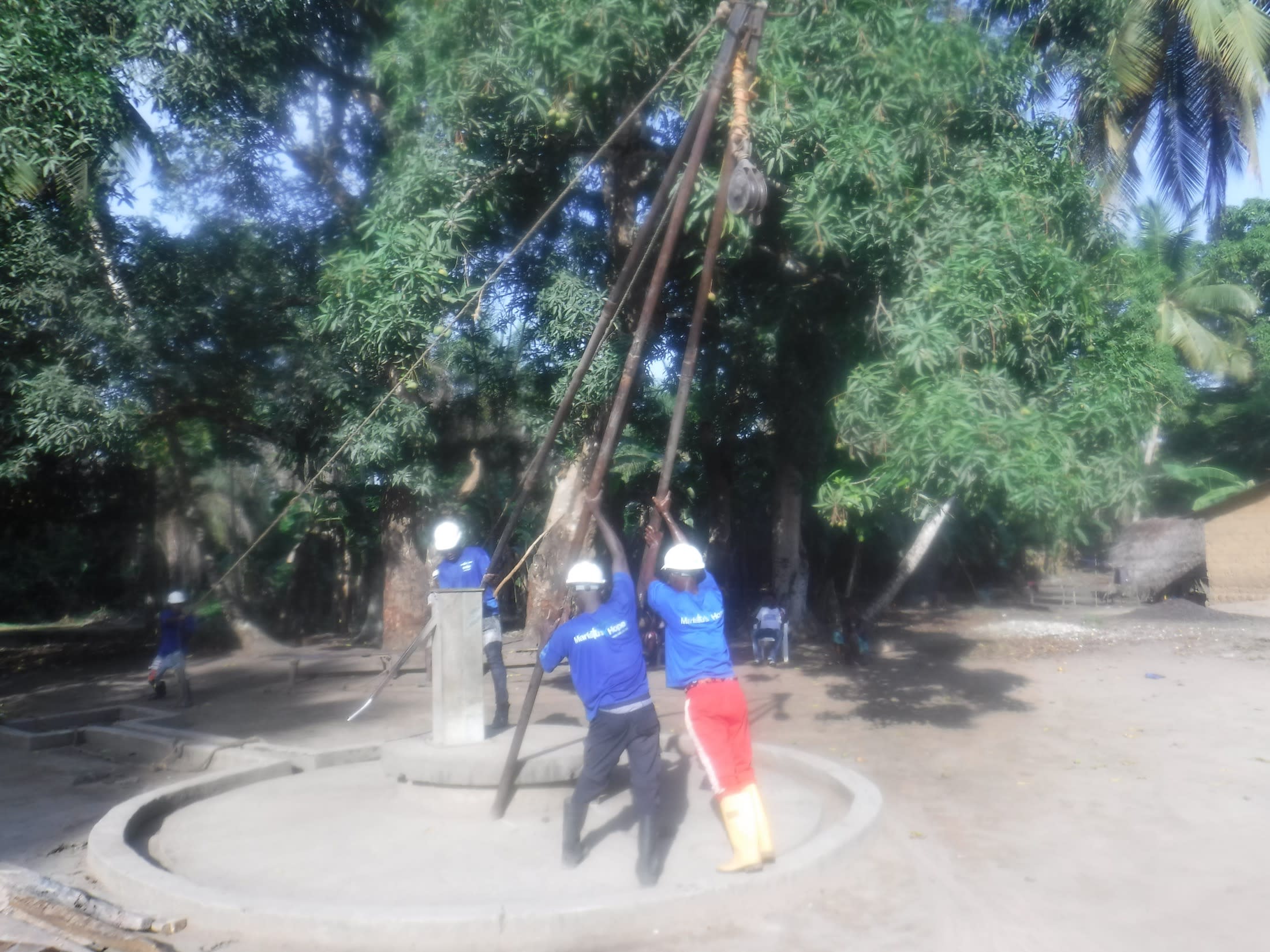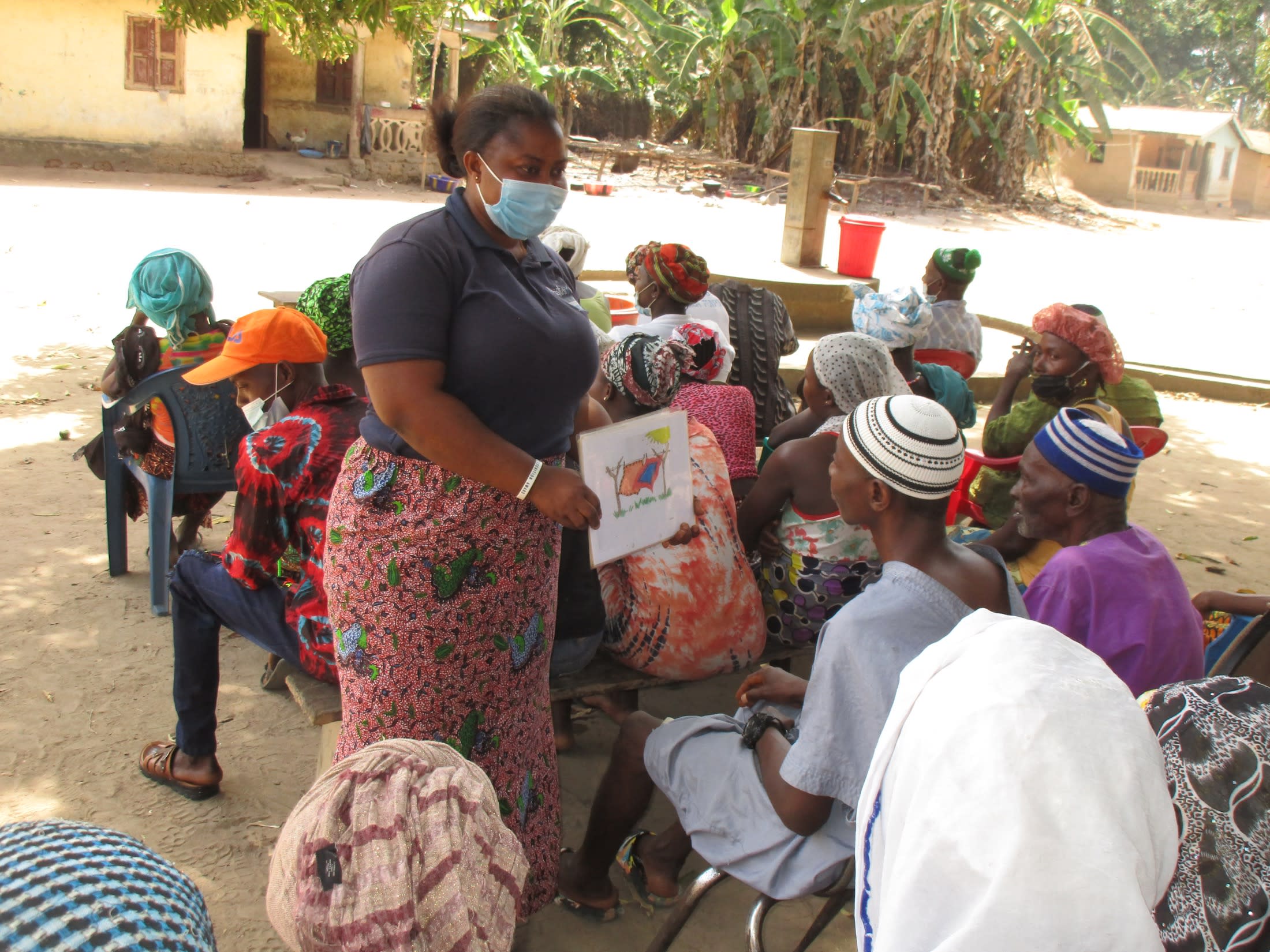Finding fresh water for the 450 community members of Robombeh Village, a coastal community in Sierra Leone, is an everyday challenge.
The current primary water source is a protected hand-dug well that has succumbed to global warming. The seasonal changes have greatly affected the water table and have increased the months the water well is dry. What started as a slow recharge rate (recharge refers to how quickly the water in a well replenishes) escalated to continuous dry spells lasting several months at a time.
The well is also in need of serious rehabilitation. The pad has cracks, the pump is worn, and the drainage pit is clogged. Animals easily contaminate the area by defecating and urinating nearby. Chlorination and water quality testing are not routinely done.
Robombeh's community members rely on fishing as their primary source of income, but freshwater is vital for preparing and preserving the fish before they're sold. Without access to sufficient clean water, they lose valuable income.

"I am a petty trader that makes money selling hot cooked meals to the fishermen and other people that visit our village," said trader M'balu Kamara, 45, pictured above.
She continued, "I really suffer a lot because of the people I have to pay every day to fetch water for me. It is a trade-off I am willing to take since this is what I have been doing for as long as I can remember. The money that is used to pay for fetching water at the Mapitherr water point and motorbike fee cuts into my daily profits."
When the well water dries up, community members must travel four miles to another village to collect clean water from a converted borehole or use saltwater for cooking and bathing, which is not ideal.
Isatu K., 17, said, "It is very difficult to bathe properly before going to school in the morning because water without salt is difficult to come by. I am in secondary school, and making sure my white uniform is properly clean is very important. Using saltwater to do laundry does not produce soap suds, and the clothes will never be clean to how I would like them."
Collecting water from the other village means the expense of hiring a motorbike to transport containers of water with money some residents simply cannot afford. Those who cannot afford it must walk to collect water, requiring them to expend a lot of time and physical energy.
Children go to school with empty water containers they must fill on their way home, but walking such a long distance with a full water jug on their heads is exhausting, as shared by Isatu. "Women suffer the most when there is no clean water in any community. I make sure I take an empty container to school and bring back water on my way home. The walk is long, and I have tried several times to carry the water until I get home, but it is impossible for me. Whenever I tell my parents that I cannot do that, especially my mother, [she] will snap at me that we have become a generation of lazy people."
Once community members have access to this rehabilitated well, we hope that they will spend their time, energy, and finances on other things and enable their futures to look brighter.
Here's what we're going to do about it:
Well Rehabilitation
The well marked for this overhaul is dry for a few months every year and needs major work to supply adequate, clean water to the community year round. The pump will be removed, and a hand auger will be lowered inside and powered by a drill team. This hand auger will allow the team to drill several meters deeper to hit a sufficient water column that will ensure the well supplies water throughout all seasons.
As the team drills, casing will be installed, transforming the bottom of this hand-dug well into a borehole. PVC piping will connect this lower system directly to the pump, a construction that we know will also improve the quality of water.
Once this plan is implemented, everyone within the community will have access to safe drinking water in both quality and quantity, even through the dry months.
Hygiene and Sanitation Training
There will be hygiene and sanitation training sessions offered for three days in a row.
After our visit, the hygiene and sanitation trainer decided it would be best to teach community members how to build a tippy tap (a hand-washing station built with a jerrycan, string, and sticks). They will use these tippy taps for handwashing demonstrations, and will also teach about other tools like dish racks and the importance of properly penning in animals.
These trainings will also strengthen the water user committee that manages and maintains this well. They enforce proper behavior and report to us whenever they need our help solving a serious problem, like a pump breakdown.

 Borehole Well and Hand Pump
Borehole Well and Hand Pump

































